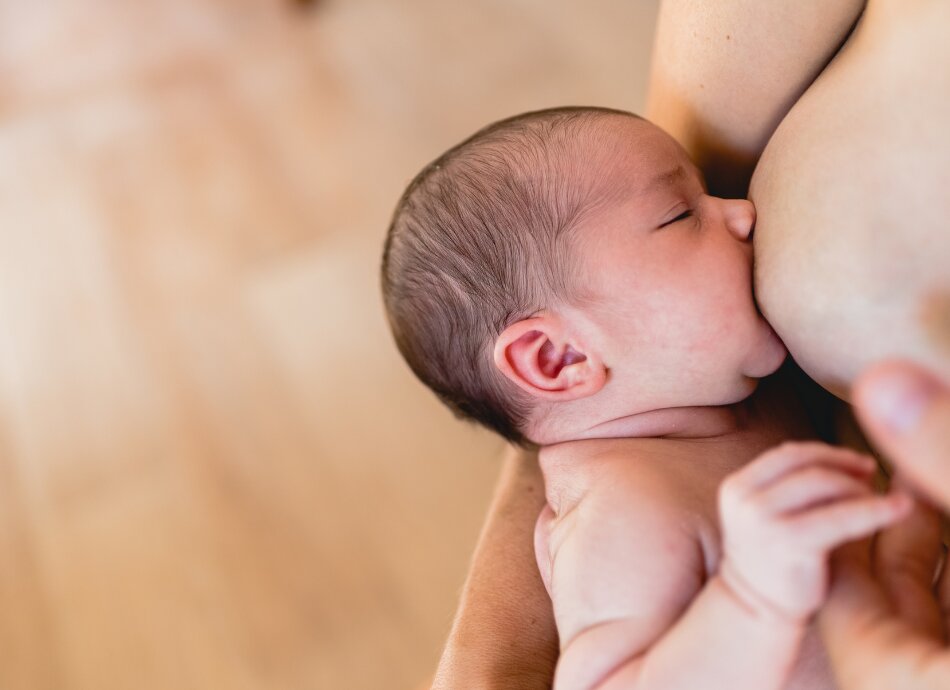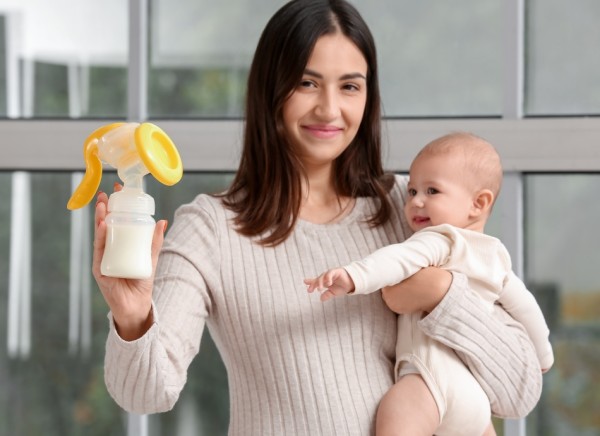You can now add Healthify as a preferred source on Google. Click here to see us when you search Google.
Breastfeeding and alcohol
Key points about breastfeeding and alcohol
- When you are breastfeeding, anything you eat or drink can find its way into your breast milk – including alcohol.
- Many parents may want to drink, but have concerns about any possible effects on their baby.
- The best advice is to completely avoid alcohol while breastfeeding, especially during the first month.
- If you do decide to drink this should be as little, or infrequently, as possible and plans put in place so that your baby doesn't consume high levels of alcohol through your breast milk.

If you do choose to drink it is safest to:
- avoid breastfeeding for 2 to 3 hours afterwards for each standard drink you have – you can use the Feed Safe NZ app to calculate how long to wait until there should be no alcohol in your breast milk
- make sure that your baby has someone looking after them who is alert to their needs
- never share a bed or sofa with your baby if you have had any alcohol.
Regularly drinking large amounts of alcohol while you're breastfeeding could harm your baby. Research suggests that breastfed babies whose mothers drink 1 to 2 standard drinks of alcohol or more per day on a regular basis may have impaired motor development, disturbed sleep and may feed less, which can slow weight gain.
Occasional alcohol use has less risk as long as the consumption is timed well and breastfeeding is delayed for long enough after drinking.
Drinking too much alcohol can also affect your ability to care for your baby. If you choose to have a few drinks, make sure that your baby has someone looking after them who is alert to their needs. Never share a bed or sofa with your baby if you have had any alcohol. Doing this increases the risk of sudden unexplained death or accidental smothering.
The amount of alcohol that gets into your breast milk is determined by various factors including:
- the quantity and strength of the alcohol you drink
- the speed that you're drinking
- what you've eaten during the day and how much
- your own personal physiology and metabolism including your weight.
When you drink, alcohol passes from your stomach into your bloodstream and from there into your breast milk. The level of alcohol in your breast milk is approximately the same as the level in your blood. These levels peak about 30 to 40 minutes after you’ve had your drink, and then they both start to drop as your body breaks the alcohol down.
A newborn baby has an immature liver and it takes twice as long for their body to break down alcohol as it does for adults.
If you do choose to drink, it is safest to avoid breastfeeding for 2 to 3 hours afterwards for each standard drink you have. This allows the alcohol to clear from your breast milk. A convenient time to have a drink is just after you have breastfed your baby. This will allow the alcohol to clear from your breast milk during the natural interval between breastfeeding sessions.
One standard drink is approximately:
- 100 mL (small) glass of wine
- 330 mL of beer
- a single (30 mL) measure of spirits.
Keep in mind that not all alcoholic drinks are the same strength. One standard drink will be contained in a smaller volume if you are drinking ‘strong’ beer, neat spirits or fortified wine.
If you have a social occasion to attend where you intend to drink more than 1 standard drink, plan ahead and express. The expressed breast milk can be fed to your baby while the alcohol is clearing from your body.

Image credit: Canva
Your breasts may become uncomfortably full if you skip a breastfeeding session so you may wish to 'pump and dump'. This will help prevent engorgement and maintain your milk supply. Keep in mind that pumping doesn’t speed up the elimination of alcohol from your body and any milk expressed while or soon after drinking alcohol should be thrown away.
Yes, there is an app called Feed Safe NZ. It contains official recommendations from Health New Zealand | Te Whatu Ora, along with contact details for breastfeeding information and support services.
Promotional material for the app says it contains answers to the most common questions about alcohol and breastfeeding. Among its features the app has a timer, which uses a mother's height, weight and alcohol intake to estimate when her breast milk should be free of alcohol.
There is no evidence that drinking alcohol, including stout, will help you produce more milk.
Alcohol actually decreases the milk let-down reflex, causing:
- a temporary decrease in milk production, or
- stopping milk flowing freely, and causing milk to stay in the breasts which gives the impression that your breasts are making more milk.
The presence of alcohol in breast milk has also been shown to cause babies to drink about 20% less than usual.
The following links provide further information about breastfeeding and alcohol. Be aware that websites from other countries may have information that differs from New Zealand recommendations.
Breastfeeding – getting out and about(external link) Health New Zealand | Te Whatu Ora
Breastfeeding and drinking alcohol (external link)NHS Choices, UK
Breastfeeding and alcohol(external link) KellyMom, US
Alcohol and breastfeeding(external link) Australian Breastfeeding Association, Australia
Brochure
Alcohol and breastfeeding, a guide for mothers(external link) Australian Breastfeeding Association, Australia, 2024
References
- Alcohol and breastfeeding(external link) Basic and Clinical Pharmacology and Toxicology, November 2013
- Australian guidelines to reduce health risks from drinking alcohol(external link) National Health and Medical Research Council, Australia, 2020
- Alcohol and breastfeeding(external link) Australian Breastfeeding Association, Australia, 2022
- Yang Y. Yi B. Zhang T. The impact of substance use disorder and drug transfer into breast milk – implications for maternal and infant health(external link) Pharmaceutics 2025;17:719
Can I drink alcohol if I'm breastfeeding?
It's best not to drink alcohol while you're breastfeeding, especially during the first month, as your baby can consume alcohol through your breast milk. If you do want to drink, limit it to a very small amount (large amounts could harm your baby) and time it so that the alcohol has left your system by the time you feed your baby again.
Will my baby get alcohol through my breast milk?
Yes, what you eat and drink can find its way into your breast milk and that includes alcohol. When you drink alcohol it goes from your stomach to your bloodstream and from there into your breast milk. The level of alcohol in breast milk is about the same as it is in your blood.
When can I breastfeed after drinking alcohol?
It's best not to drink alcohol at all if you're breastfeeding but if you do, it's safest to avoid breastfeeding for 2 to 3 hours afterwards for each standard drink you have.
Is there an app I can use to know when I can breastfeed after drinking alcohol?
Yes, there is an app called Feed Safe NZ. Among its features, the app has a timer, which uses your height, weight and alcohol intake to estimate when your breast milk should be free of alcohol.
Credits: Healthify editorial team. Healthify is brought to you by Health Navigator Charitable Trust.
Reviewed by: Dr Lottie Wilson, General Practitioner, Queenstown
Last reviewed:





